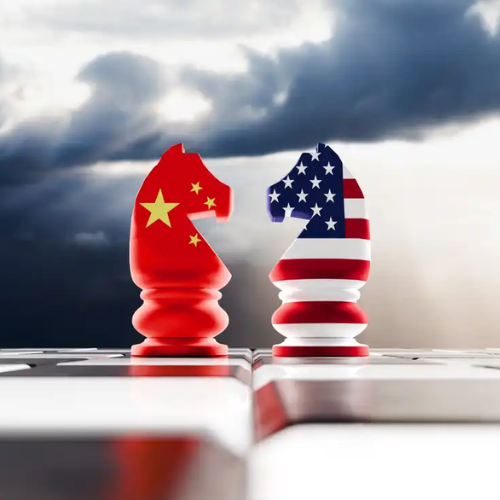In recent developments, China now faces massive tariffs—up to 245%—on its exports to the United States. This significant move comes as a result of the ongoing trade tensions between the two largest economies in the world. The U.S. imposed these tariffs after China retaliated against earlier U.S. tariffs placed on Chinese goods. The tariffs have created an economic battle, with both countries taking steps to punish each other through taxes and trade restrictions.
The tariffs imposed by the U.S. are some of the highest seen in global trade. These tariffs make Chinese products much more expensive to import into the U.S., which could hurt Chinese businesses that rely on exporting goods to one of the world’s biggest markets. The United States government hopes this will put pressure on China to negotiate better terms for trade, but it has also caused major disruptions in the global supply chain.
China’s Response: A Stand Against U.S. Pressure
In retaliation to the U.S. tariffs, China has taken a strong stance against U.S. companies, particularly in the aviation sector. China’s government has instructed its airlines to stop taking any further deliveries of Boeing jets, a significant move given Boeing’s importance in the global airline industry. Along with halting aircraft deliveries, Chinese airlines have also been ordered to stop buying aircraft parts and equipment from U.S. manufacturers. This decision directly affects Boeing, one of the largest American companies, and its supply chain, as China is one of its biggest customers.
Confusion Reigns as President Shuts Down ‘False’ Tariff Loophole for Tech Imports
China’s government has made it clear that it is not afraid to enter a full-fledged trade war with the U.S. despite the severe economic impact these tariffs might have. The Chinese government has called for dialogue and negotiations but insists that these discussions must be based on mutual respect and fairness. China’s position is that the U.S. should stop using extreme tactics like blackmail and threats in order to make a deal. Instead, they emphasize the need for equal discussions where both sides can benefit.
The U.S. Perspective: A Tough Stance on Trade Deals
From the U.S. side, the message is clear: China must make the first move in negotiations. The U.S. government has expressed that it is open to reaching a trade deal with China but wants Beijing to take the initiative. This position has been highlighted by U.S. officials, who emphasize that the ball is in China’s court. The idea is that China needs to offer something meaningful in order to restart negotiations and settle the trade dispute.
While the U.S. president has occasionally praised the Chinese president, the ongoing trade war between the two nations has shown that neither side is willing to back down. Both countries continue to escalate their tariffs on each other’s goods, with the U.S. raising tariffs on numerous Chinese imports, and China responding with tariffs of its own. This has led to a complicated and tense trade relationship, where each side is trying to get the other to make significant concessions.
Stock Markets Explode After Trump’s Truth Social Post and Tariff Freeze — Timing Raises Eyebrows
The Economic Impact: Tariffs and Trade Disruptions
For China, the imposition of these steep tariffs—up to 245%—on its exports to the U.S. is a major economic challenge. It could lead to reduced sales of Chinese products in the U.S. market, which in turn could hurt Chinese manufacturers and workers. With the U.S. economy being a key market for Chinese goods, this situation could cause long-term damage to the trade balance between the two nations.
As the conflict continues, the world watches closely. The trade war between China and the U.S. not only affects the two countries but also has far-reaching consequences for global trade and the international economy. While China is determined to stand its ground, the U.S. is firm in its belief that a fair trade agreement is necessary, with the hope that China will make the first step to resolve the situation.
This ongoing situation highlights the importance of trade relations between the U.S. and China and serves as a reminder of how powerful tariffs and trade restrictions can be in shaping global economics.


